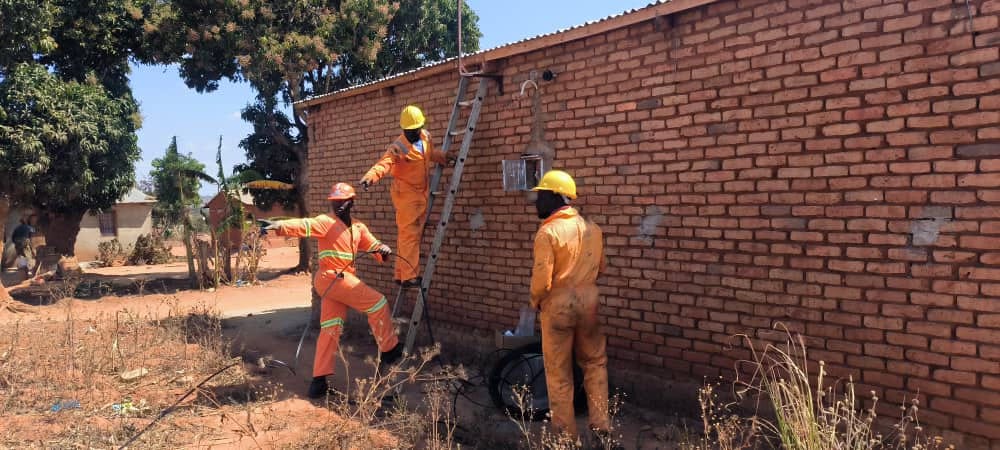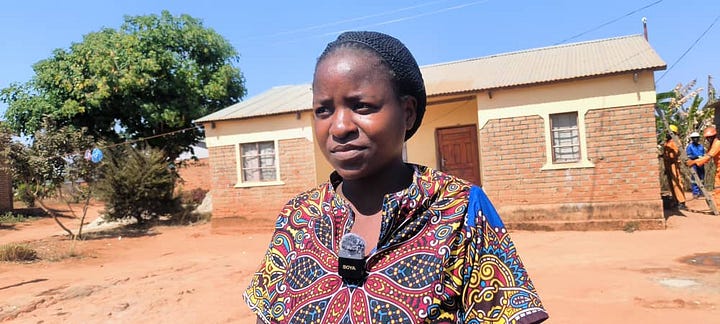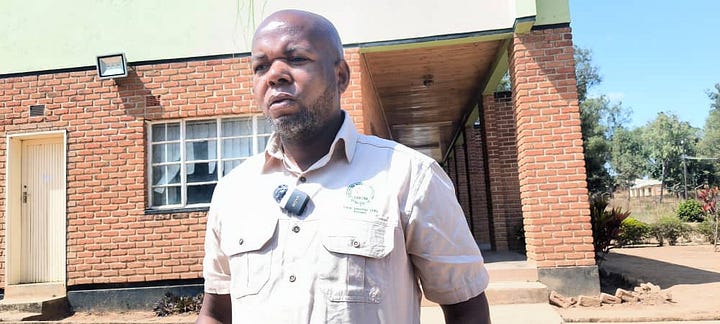GRID CONNECTION - Mzimba communities embrace electricity to curb deforestation
Communities in Mzimba District are seeing a transformative shift thanks to the Malawi Energy Access Project (MEAP), which is connecting rural households to the national electricity grid.

MZIMBA, Malawi (Planet Defence) - Residents of Mzimba District who recently gained access to the national electricity grid through the Malawi Energy Access Project (MEAP) say the development has renewed their hope in the fight against deforestation caused by excessive charcoal production writes Sarah Saulos.
The MEAP initiative, spearheaded by the Government of Malawi and implemented by the Electricity Supply Corporation of Malawi (ESCOM). The project aims to increase Malawi’s electricity access rate from 15.6 percent in 2023 to 25 percent, potentially connecting an estimated 3.5 million Malawians—about 20 percent of the national population.
It targets households located within a 500-metre radius of existing single-phase grid infrastructure, especially in rural and underserved areas.
Several beneficiaries from communities in the area of Traditional Authority Mzukubola say the electricity connection has already begun transforming their energy use habits. Many report switching from charcoal and firewood to electric cooking appliances such as stoves and hot plates—reducing their dependency on forest-based fuels.
Aggrey Pachoko Phiri, a resident of Londobala Botha village, described the electricity connection as both convenient and cost-effective. He noted that before the connection, his household relied heavily on charcoal for cooking.
“Before being connected to electricity, we mostly depended on charcoal. Now that we are on the grid, we use electric stoves and hot plates, which we hope will help reduce pressure on our forest resources,” said Phiri.
He added that the change has also brought financial relief. “I used to spend over K30,000 a month on charcoal and firewood. Now, with electricity, I spend half that amount on both cooking and powering household appliances,” he said.
Another resident, Martha Mseteka from Mtende Village, echoed Phiri’s sentiments, stating that cooking with electricity is not only cleaner and faster, but also improves indoor air quality.


“Charcoal smoke used to be a big problem, especially for children. With electricity, our kitchens are cleaner and healthier,” she said.
Energy experts have welcomed the development as a positive step toward reducing deforestation, one of the key drivers of climate-related challenges such as droughts, floods, and soil degradation. Mzuzu-based energy specialist Paul Mvula said MEAP is a timely intervention that addresses both environmental and energy access issues.
“The MEAP project is a major step in reducing the country's dependence on charcoal, which has exerted immense pressure on Malawi’s forest reserves,” Mvula said. “If more households are connected to the grid, we expect a decrease in charcoal use and production, which will contribute significantly to forest conservation.”
Mvula further urged government and development partners to invest in scaling up clean energy programs like MEAP. He noted that expanding access to electricity and promoting energy-efficient appliances could significantly lower deforestation rates and reduce Malawi’s reliance on imported fossil fuels.
According to statistics from the Department of Forestry, Malawi loses an estimated 33,000 hectares of forest annually due to illegal charcoal production, which continues to be a major contributor to environmental degradation.
In an interview, ESCOM’s Chief Public Relations and Communications Officer Pilirani Phiri confirmed that the MEAP initiative is in line with national efforts to promote environmental sustainability and clean energy access.
“As of July 22, 2025, approximately 160,000 households have been connected to the national grid out of the targeted 180,000 since the project began in 2022,” Phiri said.
Funded by the World Bank with a total investment of $71 million, MEAP is expected to conclude in December 2025.
With increasing numbers of households making the switch to electricity, community members and experts alike believe the project could serve as a turning point in Malawi’s efforts to combat deforestation and build a more sustainable energy future.
